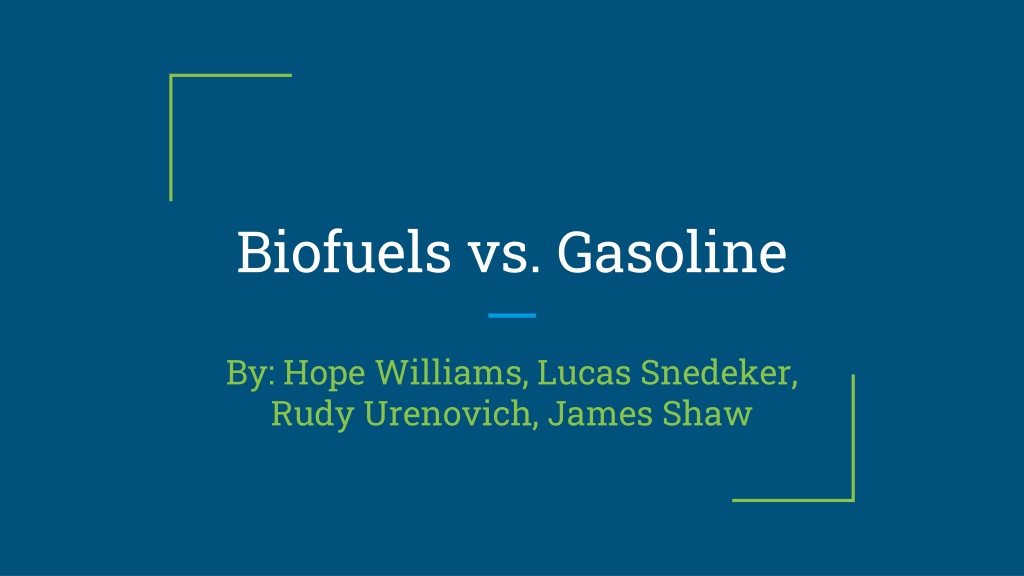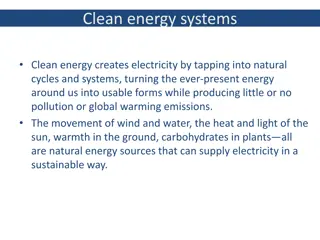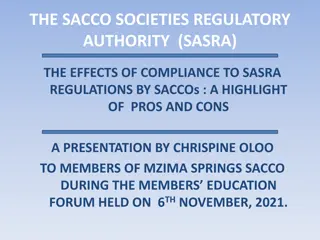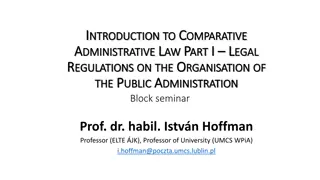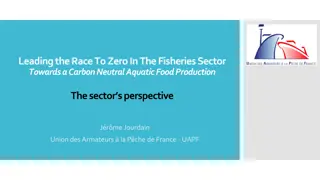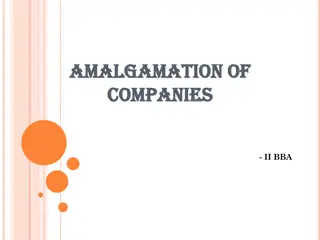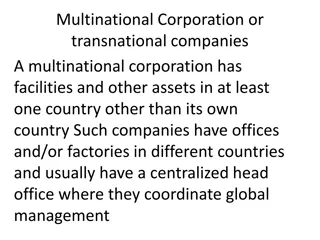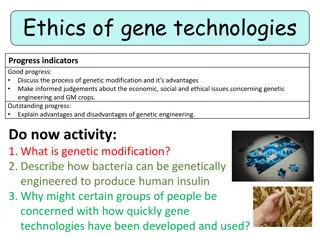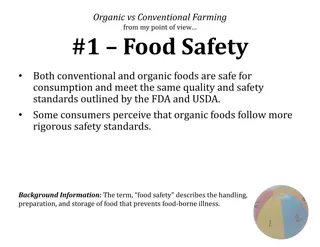Pros and Cons of Biofuels in Comparison to Gasoline
Biofuels, renewable liquid fuels made from biomass, have various environmental and socio-economic benefits over gasoline. They can replace fossil fuels, reduce greenhouse gas emissions, create jobs, boost economies, and utilize common wastes efficiently. However, challenges like production costs, supply stability, and competition with food production exist. Understanding these pros and cons is crucial in evaluating the overall impact of biofuels as an alternative to traditional gasoline.
Download Presentation

Please find below an Image/Link to download the presentation.
The content on the website is provided AS IS for your information and personal use only. It may not be sold, licensed, or shared on other websites without obtaining consent from the author. Download presentation by click this link. If you encounter any issues during the download, it is possible that the publisher has removed the file from their server.
E N D
Presentation Transcript
Biofuels vs. Gasoline By: Hope Williams, Lucas Snedeker, Rudy Urenovich, James Shaw
What are Biofuels? Biofuels-are renewable, liquid fuels made from biomass Main use for Biofuels in Transportation Two main types of Biofuels: Ethanol: Is a biofuel made from plant matter. Often mixed with Gasoline to increase Octane and decrease Carbon monoxide and other harmful admissions. Biodiesel: Is made from clean and used vegetable oil and animal fats. Often used as healthier alternative to Petroleum
Pros of Biofuels: Environmental Can replace fossil fuels for energy Burning and consumption are considered clean energy -No Harmful greenhouse gases are emitted -Methane, CO2, Sulfur limited to the atmosphere Do not contribute to global warming. -Release previously emitted carbon dioxide-no influx into atmosphere
Pros of Biofuels: Environmental This table shows common conventional fossil fuel combustion in industrialized countries and the equivalent environmental impacts of each and compares it to that of biofuels
Pros of Biofuels: Socio-Economical Biofuels come in multiple different ways, which makes the supply more common. -More options to produce, sell, and boost economy Will help create jobs and boost the economy; family farms can have an extra boost of income Reduces dependency on foreign sources for oil. -Reduces overall exportation
Pros of Biofuels: Economical AND Environmental Common Wastes can be reused as biofuels, limits landfills and incineration Technology is improving at a increasing rate -Production can increase drastically Biomass cultivation can boost severely damaged land to better health
Cons of Biofuels- Economical Very expensive to produce in comparison to fossil fuels. -Hard to keep a steady supply -Lower Yield Production of biofuels can cause a drastic increase of food products being used for biofuels rather than a food source. -Farmers increasingly putting crop yield to biofuels rather than food supply
Cons of Biofuels- Impact on Food supply The table shows the steady increase of basic crops such as corn and soybean yields being used for biofuel instead of food supply from 2000-2015
Cons of Biofuels- Environmental Would cause some destruction in agricultural areas -plants and organic material would diminish May cause different pollution than that of traditional gas -Nitrous Oxides
So, Are Biofuels Better For The Environment? As a group, we decided that yes, in the end, biofuels are better for the environment than gasoline. With a new Presidential administration, we will see what choices they make in regards to energy sources.
References Works cited Biofuels Basics. Energy.gov, www.energy.gov/eere/bioenergy/biofuels-basics. Martin, J. (2016, June 23). Everything You Ever Wanted to Know About Biodiesel. Retrieved November 11, 2020, from https://blog.ucsusa.org/jeremy-martin/all-about-biodiesel Petrou, Evangelos C., and Costas P. Pappis. "Biofuels: a survey on pros and cons." Energy & Fuels 23.2 (2009): 1055-1066. Puppan, Daniel. "Environmental evaluation of biofuels." Periodica polytechnica social and management sciences 10.1 (2002): 95-116. Shinde, R. A. "Biofuels: pros and cons." Cooperative Sugar 41.8 (2010): 31-33.
